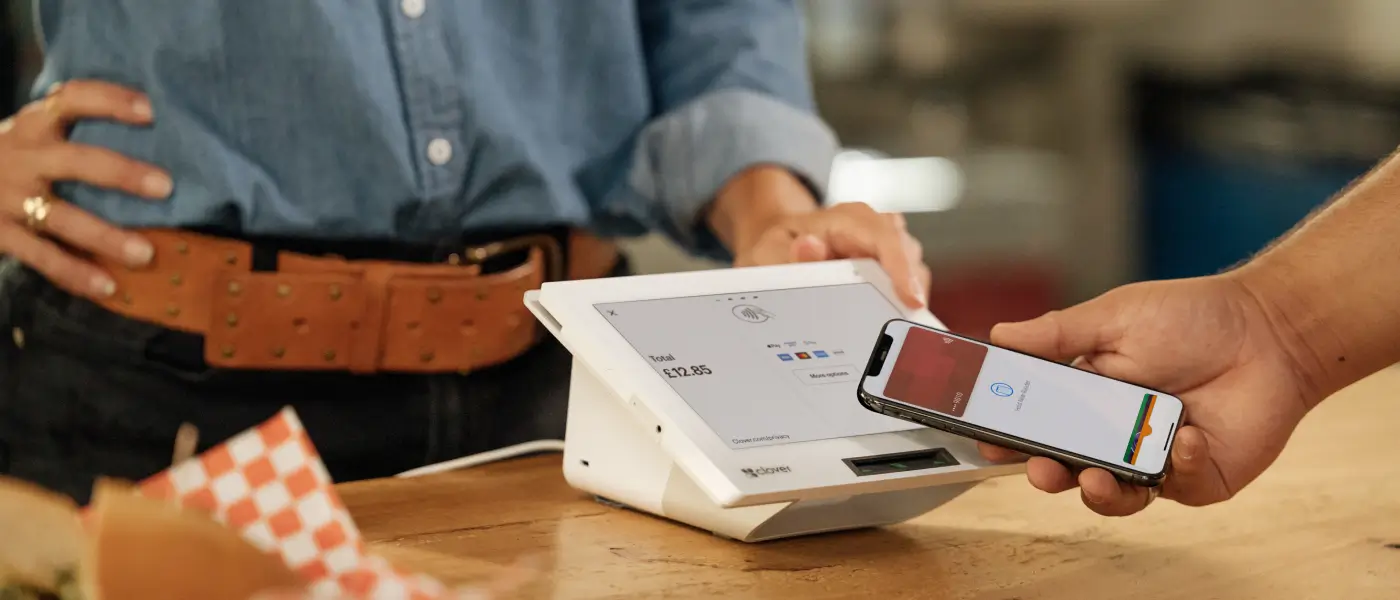Table of Contents:
What is an EPOS system? A simple definition
An EPOS stands for electronic point of sale. This digital solution combines hardware and software to process transactions, track stock and manage customer data. But what is an EPOS system in a supermarket? What is an EPOS till system? What is an EPOS system used for? Well, many businesses describe it as an intelligent control centre that records every sale, updates stock instantly and integrates with accounting and e-commerce tools for accurate reporting.
Unlike a traditional till, an EPOS system acts as the central hub of a business, connecting the shop floor with the back office. The typical setup includes a touchscreen terminal, a card reader, a receipt printer and a cash drawer, all powered by advanced POS software.
The key components: How an EPOS system works
An EPOS system consists of three main elements: software, hardware and connectivity.
The software is the operational brain. It processes transactions, tracks sales in real time and manages employee access. Comprehensive reporting tools highlight top-performing products and staff efficiency, supporting data-driven decisions.
Hardware forms the user interface. A touchscreen monitor streamlines order input, while a card reader, such as those integrated in Clover Flex, enables secure and fast payments. Receipt printers and cash drawers manage proof of purchase and cash handling efficiently, ensuring a smooth shopping experience.
This combination answers the question: What is an EPOS till system? Connected hardware and software deliver accurate transactions, reduced queue times and seamless integration between front-end sales and back-office management. But how are they connected? Via the cloud.
Cloud-based access enables managers to view live data remotely, update prices or review sales trends without being on-site. This is particularly important for multi-location operations and hybrid retail models where online and offline channels overlap.
More than a transaction: What an EPOS system does for a business
EPOS systems automatically adjust stock levels after each sale, helping businesses prevent overstocking or stockouts. Accurate inventory data ensures popular products remain available, increasing both efficiency and profitability.
So, what is an EPOS system in a supermarket? A command centre with live updates that ensure perishable items are reordered at optimal times. This leads to reduced waste, greater profits and enhanced customer satisfaction. And with customer consent, EPOS software can store information to support loyalty schemes or tailored promotions. Models such as Clover Flex and Clover Mini help businesses use purchase history to create offers that encourage repeat visits and strengthen customer engagement.
An EPOS system provides deep insights into performance metrics such as peak trading hours, top-selling products and staff productivity. These analytics replace guesswork, supporting accurate forecasting and long-term growth.
EPOS system vs cash register: Understanding the upgrade
A cash register just records sales, but with the UK POS market projected to reach approximately GBP 1.11 billion by 20301, businesses need more advanced solutions. What is an EPOS till system then? It’s an EPOS system that also analyses sales, identifying patterns to facilitate staffing and stock planning.
With real-time data, shop owners adjust stock levels or pricing as needed, while accurate reporting from an EPOS till system enables faster, more informed actions. Cloud-based EPOS solutions, such as Clover Station Duo, support online integration and mobile payments. Essentially, an EPOS system is a tool for managing and growing a business.
Is an EPOS system the right tool for business owners?
So, let’s answer the question: What is an EPOS system used for? It serves as a comprehensive management solution that consolidates sales processing, stock control and customer engagement into one platform. Automating manual tasks, such as stock tracking or payroll, allowing staff to focus on customer service and strategic initiatives.
Adopting an EPOS system represents a long-term investment in efficiency, profitability and adaptability. Many business owners highlight time savings, enhanced visibility and improved data accuracy as key benefits. Contact us today to streamline operations and achieve smarter growth with cutting-edge EPOS solutions.
Bibliography
1 GlobeNewswire: UK Point of Sale (POS) Software Market to Reach $1.49 Billion by 2030




